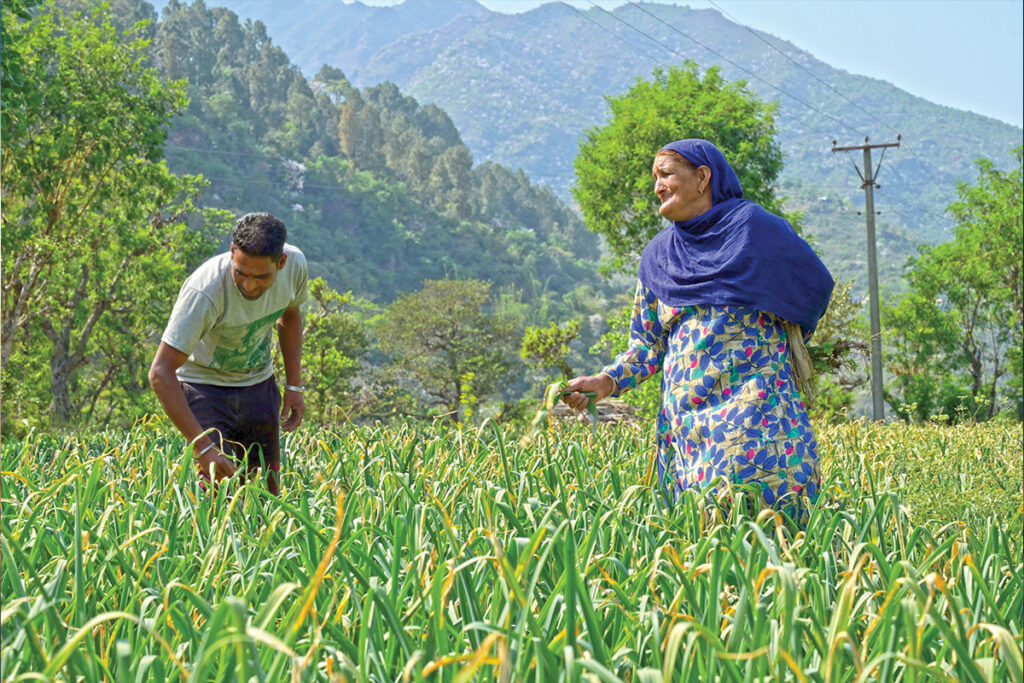As sustainability becomes a strategic and operational imperative, organisations must ensure they meet increased expectations while capturing business opportunities
Words by Dr. Shailendra Dwivedi
In an era marked by the imperative of sustainability, businesses are compelled to reevaluate their operational paradigms to align with environmental consciousness. With the global climate crisis becoming more pronounced, businesses are facing escalating risks ranging from supply chain disruptions to regulatory pressures. Multinational corporations, recognising the challenges, are adopting comprehensive strategies to manage climate risks.
These efforts often include setting emission reduction targets, transitioning to renewable energy sources, and incorporating climate considerations into supply chain management. International standards and initiatives, such as the Task Force on Climate-related Financial Disclosures (TCFD), Global Reporting Initiative (GRI), Sustainability Accounting Standards Board (SASB), are also influencing corporate risk management practices on a global scale.
‘In 2023, India ranked 7th in the Climate Change Performance Index, up one spot from the previous one, and also remained among the highest performers, according to the report released in Dubai during the global climate talks COP28.’
At the 28th meeting of the Conference of the Parties (COP28), private-sector leaders emphasised the urgent need to address climate risks while simultaneously driving economic growth. Deliberations prioritised immediate action over long-term commitments, highlighting the necessity to accelerate transformation. While USD 80 billion in climate finance commitments were made, there is recognition of the need for additional resources to tackle climate risk effectively.

India’s Third National Communication to the United Nations Framework Convention on Climate Change (UNFCCC) outlines the significant financial requirements for adaptation, projecting INR 72 trillion by 2030 to address climate impacts in critical sectors. The UNEP Adaptation Gap Report 2022 highlights a substantial international funding shortfall, with estimated annual needs of USD 160-340 billion by 2030. Bridging this gap is vital for India’s future resilience.
Embracing Climate Risk for Corporate Adaptation
In the contemporary business landscape, escalating climate risks pose a pressing challenge, compelling organisations to prioritise adaptation strategies. The Securities and Exchange Board of India (SEBI) mandated climate risk disclosure for the top 1,000 listed companies in 2021, underlining the imperative of assessing and addressing climate-related risks. Proactive measures like climate risk assessments, resilient business strategies, supply chain diversification, and sustainable investments are crucial. Embracing adaptability not only mitigates risks but also fosters innovation, cost savings, and competitive advantages. The Climate Change and Circular Economy Group that was formed by technical experts working at the Deutsche Gesellschaft für Internationale Zusammenarbeit (GIZ) GmbH in India is leading initiatives to transform industries, promote ecological balance, and innovate solutions for climate resilience, particularly addressing challenges in food, water, and infrastructure.

Balancing Food Security with Millets
Millets offer a sustainable solution to the challenge of balancing food security and resource conservation. With India contributing 41% of the global millet production, the country aims to become one of the top three millet exporters by 2025. Recognising the value of processed millet products, India seeks to boost rural economies. Strengthening the millet value chain can lead to comprehensive development for small farmers and women, creating more livelihoods. The commitment of the Government of India is evident through the allocation of INR 800 crore for millet-based products under the Production-Linked Incentive (PLI) scheme, further supporting millet production efforts.
The National Bank for Agriculture and Rural Development (NABARD) and GIZ joined hands to support the millet value chain for minor millets (Kodo/Kutki) in Mandla, Madhya Pradesh. Their shared objective was to promote climate resilient livelihood opportunities for vulnerable communities. The Reliance Foundation and HDFC Bank also partnered on this initiative which was part of the Indo-German development cooperation project ‘Climate Adaptation and Finance in Rural India (CAFRI)’ that GIZ implements on behalf of the Federal Ministry for Economic Cooperation and Development (BMZ). Through the transformative impact of incentivising climate resilient livelihoods with minor millets on rural farmers in 84 villages of Mandla district, over 4,700 farmers, including 40% women, now have access to crucial financial resources. This has enabled them to sell more than 2,000 metric tons of minor millets, resulting in revenue earnings exceeding INR 50 million. The combined impact of increased access to finance, substantial sales of minor millets, and enhanced market value has been instrumental in uplifting the lives of farmers and their communities for a prosperous future.
From Local to Global – Eco Villages of India
India faces a dire water and waste management situation, particularly impacting its impoverished and marginalised communities. A recent report by NITI Aayog exhibited concerning trends of groundwater overexploitation in the Indian states of Punjab and Uttar Pradesh. Both urban and rural areas struggle with waste management, further burdening rural local bodies with limited resources. Improper disposal of wet waste poses health risks, while plastic waste adds to environmental challenges in landfill sites. Additionally, the agrarian nature of states like Uttar Pradesh and Punjab leads to unregulated use of water and energy, exacerbating their carbon footprint.
The public-private partnership project ‘From Local to Global – Creating a Model for Eco-villages’ that GIZ implements on behalf of the Federal Ministry for Economic Cooperation and Development (BMZ) and in close cooperation with Hindustan Unilever Limited (HUL), aims to develop sustainable and inclusive communities around HUL sites in Hamirpur (UP) and Patiala (Punjab), India. By adopting an integrated development framework, the partnership seeks to contribute to the Sustainable Development Goals (SDGs) at the local level. The project aims to achieve water positivity, zero waste to landfill status, and reduced carbon footprints in the targeted villages, benefiting approximately 11,200 people from 3,600 households, with a focus on marginalised families. Through shared responsibility and collaboration among stakeholders, the project will create a model of eco-villages, promoting data sharing, policy learning, and innovative solutions to common challenges.
Shifting India’s Fashion: Towards Mindful and Sustainable Textile Practices
The textile production process is notoriously resource-intensive, leading to significant solid waste generation and a staggering annual emission of 1.2 billion tonnes of greenhouse gases (Ellen MacArthur Foundation, 2017). Despite India’s textile and apparel industry ranking sixth globally and contributing 2% to the nation’s GDP in 2019-20 (IBEF, Oct 2020), there’s an urgent need for a paradigm shift in its operations. With India being a pivotal manufacturing and consumption hub, it’s imperative to adopt circular approaches to mitigate textile waste and foster resource-efficient closed-loop systems. However, a lack of awareness among key stakeholders hinders this transition, highlighting the crucial necessity for integrating circularity principles into business development within the Indian textile sector.
GIZ is implementing a public-private partnership project in the textile cluster across northern, southern, and western India on behalf of the Federal Ministry for Economic Cooperation and Development (BMZ). Aditya Birla Fashion and Retail Limited (ABFRL) acts as private partner to realise the project objectives, namely to bolster the Indian textile and apparel industry’s capacity in adopting circular approaches. By conducting pilot interventions, it promotes circular business practices and fosters an industry-wide platform for knowledge exchange and collaboration. Over 300 textile and apparel companies have already undergone training on circular business models as part of this initiative.
These instances of collaboration serve as beacons of hope amidst challenging times, casting a glimmer of light upon the dark clouds. Furthermore, exploring mechanisms tailored to industry-specific needs and encouraging industry participation in risk-sharing initiatives represent viable avenues for bolstering resilience. The pressing question arises:
‘How prepared are you for the inevitable challenges posed by climate change?’
It prompts reflection on whether corporates are effectively managing and fortifying themselves against climate risks. Examining why industries should actively engage in climate resilient practices and become integral parts of risk-sharing frameworks can contribute to a more comprehensive understanding of the intricate relationship between business, sustainable practices, and planetary goals.
The interim budget for 2024 outlines the government’s expenditure strategy for the initial half of the forthcoming fiscal year, with a particular emphasis on fostering the green economy and enhancing climate investments. In pursuit of Amrit Kaal, the Government will enact economic policies to fuel growth sustainably, foster inclusivity, boost productivity, create opportunities, and empower individuals, while generating resources to fulfil aspirations through strategic investments.

While progress is being made, challenges persist, including the need for more robust regulatory frameworks, enhanced disclosure practices, and increased adaptation measures. Ultimately, both global and Indian corporates are navigating the complex landscape of climate risks, with efforts intensifying as the world collectively addresses the imperative of sustainable and resilient business practices.
Dr. Shailendra Dwivedi is the Director of Climate Change and Circular Economy at GIZ India.
Disclaimer: This article reflects the personal opinion of the authors.


